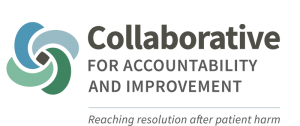Tools and Resources[ Show all or clear results ]
Classic articles every manager and aspiring leader should read and share with their teams.
Journal Article
Published articles related to CRPThe Disclosure Dilemma — Large-Scale Adverse Events
Published articles related to CRP
Large-scale adverse events are individual events or a series of related events that injured or increased the risk that many patients would be injured because of health care management. There are ethical reasons why institutions may hesitate to disclose large-scale adverse events to patients. Practical, legal, and financial considerations, such as the difficulty in predicting the likelihood of harm and identifying the injured patients, may also lead well-meaning institutions to consider not disclosing large-scale adverse events. This article discusses two ethical frameworks often used in determining whether to disclose large-scale adverse events: utilitarian and duty-based. It also describes three examples of large-scale adverse events and discuss their distinguishing features.
Journal Article
Published articles related to CRPThe Flaws In State ‘Apology’ And ‘Disclosure’ Laws Dilute Their Intended Impact On Malpractice Suits
Published articles related to CRP
Healthcare professionals are reluctant to apologize for medical errors, because they fear it could be used against them in lawsuits. In response to this issue, some states are developing policies that legally protect physicians, so they feel more comfortable apologizing to patients involved in medical errors. Even though these policies seem beneficial in theory, researchers found that these laws could discourage apologies and honest communication between patients and physicians following adverse medical events. Thus, researchers emphasize the importance for states to develop policies with modified legal protections and implications to not only promote disclosure between patients and physicians following adverse medical incidents, but also do not weaken the legal influence on lawsuits involving malpractice.
Journal Article
Published articles related to CRPThe Handbook of Communication and Social Interaction Skills
Published articles related to CRP
The Handbook of Communication and Social Interaction Skills is a holistic guide that draws form theories and surveys to improve communication and social interaction skills in various environments and settings. This handbook is divided into five sections: theoretical and methodological concepts (gaining and assessing skills); basic social interaction skills; persuading, informing, and supporting skills; various relationship skills (marriages, friendships, and romances); and skills necessary for public leadership and management (teaching and supervising).
Journal Article
Published articles related to CRPThe Impact of Adverse Events on Clinicians: What’s in a Name?
Published articles related to CRP
The authors of this article discuss how physicians are dubbed “second victims,’ due to the negative emotional and psychological challenges they experience as a result of patient adverse incidents. The authors also illustrate how the term “second victim” can be a harmful term, since it implies passivity and mitigates the experiences of patients and families also affected by medical errors. It is argued that this term points to the necessity of healthcare institutions to implement support programs to help physicians heal and cope following the negative effects of adverse health outcomes.
Journal Article
Published articles related to CRPWisdom in Medicine: What Helps Physicians After a Medical Error?
Published articles related to CRP
This article explores how physicians gain wisdom following an adverse medical event. Methods included discusses the incident with colleagues, forgiveness, accepting imperfection in the medical profession, and admitting the mistake and apologizing. These methods not only help physicians learn and cope with medically adverse events, but also help them develop a positive outlook.
